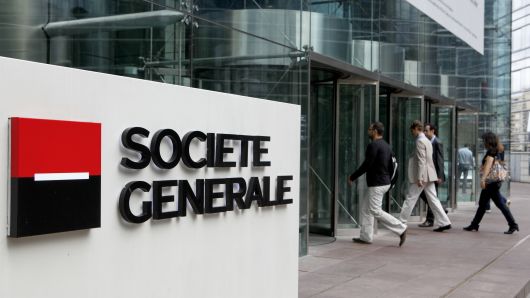Is OFAC Warning Off Foreign Banks from Iran?
In an explosive piece published this past weekend, the Financial Times alleges that OFAC may still be warning off foreign banks against re-starting correspondent banking relationships with Iranian financial institutions, despite the advent of the recent nuclear agreement (otherwise known as the JCPOA). Considering U.S. obligations pursuant to the JCPOA not to interfere with legitimate trade between Iran and other countries, what could OFAC possibly be telling foreign banks?
Citing U.S. and Iranian bankers based in the Persian Gulf, the FT article notes that U.S. dollar-clearing banks are warning their counterparts “in Europe, Asia, and the Middle East that their U.S.-based dollar accounts will face close scrutiny if they do business with Iran…” Moreover, this warning was recently “echoed by U.S. Treasury officials in meetings in the Gulf.” As a result of these dual warnings, the resumption of banking transactions with Iran has remained in stall, as foreign banks are concerned that re-engaging Iranian banks could delay the processing of their dollar-related transactions.
Providing an example of the harm this has caused Iranian banks, one Iranian banker noted that, despite the promises from Japanese banks that they would re-engage Iranian financial institutions once sanctions were lifted, “now [the Japanese banks] don’t even answer our emails.”
Perhaps OFAC is telling foreign banks not to open up correspondent accounts for Iranian financial institutions in consideration of the compliance risks associated with doing so, but the more reasonable assumption is that OFAC is apprising banking institutions of the fact that U.S. financial institutions have certain compliance-related obligations regarding their correspondents (i.e., foreign banks with accounts at a U.S. bank) and those obligations include closer scrutiny of their correspondent accounts to ensure no indirect use by Iranian banks or other related parties.
As I have discussed here, the survival of the U.S. trade embargo with Iran (i.e., the primary sanctions imposed on U.S. person dealings with Iran) has caused and continues to cause significant problems for the resumption of foreign trade with Iran. Due to the interconnected nature of global trade and finance, attempting to segment out trade restrictions so that they continue to impact U.S. persons but are lifted as to foreign persons is a difficult, if not futile, exercise. The latest trials of foreign insurers and banks seeking to re-engage Iran is a prime example of this, as their attempts at engagement have been stultified by the continued U.S. trade embargo with Iran.
Despite the public guidance that OFAC has offered foreign banks – where their compliance obligations are de facto limited to performing an adequate check against OFAC’s SDN List to ensure that no prohibited parties are involved in or otherwise benefited by a transaction and to ensuring that trade in certain materials is not being facilitated by a transaction – the fact remains that foreign financial institutions have a host of other factors to consider when deciding on whether to resume correspondent banking relations with Iranian banks. This includes, as highlighted in this particular case, a commercial consideration as to whether a resumption of activities with Iranian banks will cause U.S.- based dollar clearing financial institutions to engage in intensified scrutiny of a foreign banks’ dollar-based accounts in a manner that ends up delaying the processing of dollar-denominated payments.
Recall that U.S.-based dollar-clearing banks have their own set of compliance obligations, which includes a strict liability regime under which there can be no processing of dollar payments in which Iran or Iran-related parties have an interest. It is thus not surprising that such U.S.-based financial institutions would seek to take a closer look at the dollar-based accounts of foreign banks to ensure that Iranian parties are not involved in any transactions, even if it might mean a short but relevant delay in the processing of dollar payments. Moreover, due to the imposition of the fifth special measure on Iran pursuant to § 311 of the USA PATRIOT Act, U.S. financial institutions are “required to take reasonable steps to apply special due diligence…to all of their correspondent accounts to help ensure that no such account is being used indirectly to provide services to an Iranian banking institution.” Such “special due diligence” includes, “at a minimum,” two key elements:
First, a covered financial institution must notify those correspondent account holders that the covered financial institution knows or has reason to know provide services to Iranian banking institutions, that such correspondents may not provide Iranian banking institutions with access to the correspondent account maintained at the covered [U.S.] financial institution. Second, a covered financial institution must take reasonable steps to identify any indirect use of its correspondent accounts by Iranian banking institutions, to the extent that such indirect use can be determined from transactional records maintained by the covered financial institution in the normal course of business. A covered financial institution should take a risk-based approach when deciding what, if any, additional due diligence measures it should adopt to guard against the improper indirect use of its correspondent accounts by Iranian banking institutions…
In other words, U.S. financial institutions have special obligations when it comes to monitoring the transactional details of correspondents for evidence that Iranian parties have indirectly utilized such account. These special obligations have translated in the kinds of warnings that are currently being expressed to their foreign correspondents interested in resuming their own correspondent relations with Iranian financial institutions. Apparently, foreign banks seem put-off by the warning and are expressing disinterest in re-engaging Iran.
None of this is particularly surprising. What is surprising is that OFAC would echo the warnings of U.S. financial institutions — thereby exacerbating the underlying problem — rather than problem-solve as to how the issue can be remedied to the satisfaction of all the relevant parties, including the Iranians. It remains unclear to me whether OFAC recognizes that it is a new era where the U.S. has specific obligations related to ensuring that it does not impede Iran-related trade and that the persistent ambiguities as to the scope and application of its regulations will have that effect.




2 Comments
I believe the 5th special measure against the Islamic Republic of Iran was proposed on November 11, 2011 and has yet to be finalaized. As such, this measure does not apply for Iran. Perhaps this is because the sanctions against Iran are so broad it is not necessary.
In talking to Treasury folks, my understanding is that the NRPM has the effect of forcing U.S. financial institutions to take such special measures without FINCEN needing to perform the bureaucratic necessities that would go into a Final Rule.
Comments are closed.